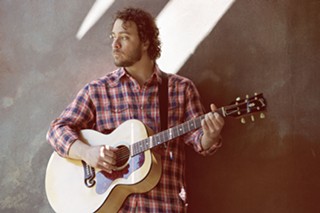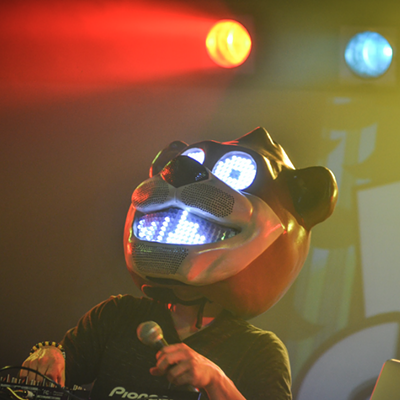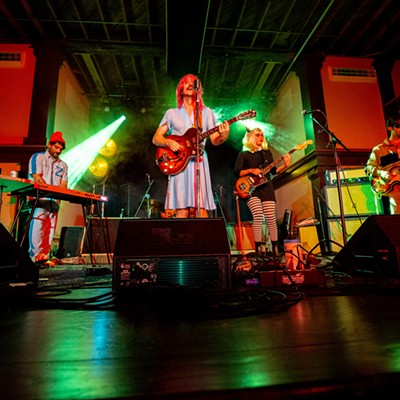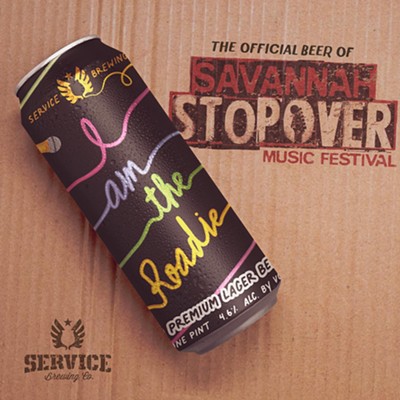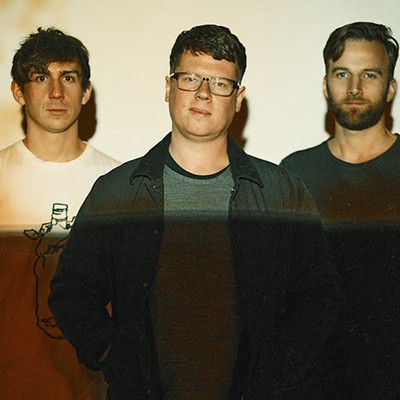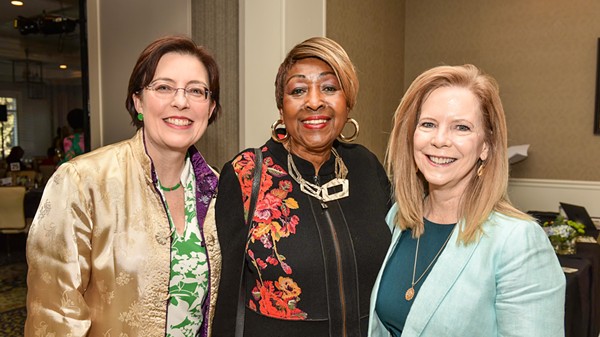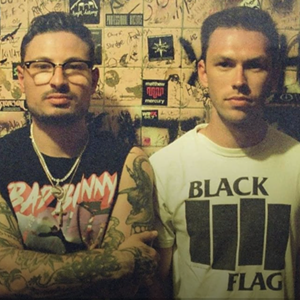AMOS LEE HAS an unusual relationship with his fans. Periodically, through his website, he'll invite aspiring songwriters to come backstage and play an original song for him. He sits with them and offers lyric and chord suggestions.
“We try to involve people in our process as much as possible,” Lee explains. “It’s sort of a thing that we feel connects with people better than just a meet ‘n’ greet after the show. There’s a lot of talented people, man. So we try to involve people in what we do as much as we can.”
He might just find a collaborator this way. “I haven’t really written with anybody yet, but I look forward to that,” he says. “I think it could be fun.”
Lee is a singer/songwriter and acoustic guitarist who fronts a full band. His songs are sensitive but not wimpy; they’re also muscular while still a few pegs shy of ass-whupping rock ‘n’ roll. The Philadelphia native’s sonorous singing voice is warm and enveloping, with a gritty edge, like James Taylor with a little Al Green or Bill Withers on the side. The music has a country-ish feel, too. Think of Taylor’s Mud Slide Slim and the Blue Horizon, and you get something of what Amos Lee’s music sounds like.
Lee comes to Savannah touring his fifth album, Mountains of Sorrow, Rivers of Song. It’s a fully-realized set of ambitious story-songs, with guests including Alison Krauss, Willie Nelson and Patty Griffin (in the past, he’s worked with a set of luminaries including Norah Jones, Lucinda Williams, Sarah Jarosz and Iron & Wine’s Sam Beam).
The styles range from beautifully constructed ballads (“Johnson Blvd.,” “Chill in the Air”) to thought-provoking stories that echo the best of John Prine or Guy Clark (“Dresser Drawer”) to sinewy, R&B-flavored grooves that could have been recorded at Muscle Shoals (“The Man Who Wants You”).
Banjo and dobro inhabit the sonic corridors of “Stranger,” a killer uptempo tune that features—wait for it—a backwards guitar solo straight out of the 1960s.
According to Lee, nothing is planned. “You go in there with a batch of songs and you troubleshoot along the way, but most of the time, for us, it’s just what happens in there,” he says. “Sometimes it’s good to have a clear-cut idea on what you want, on certain things. But for the most part it’s just been us going in with songs and having a good time with it.
“Our process in the studio is pretty organic. We just play the song. We’ll play it two or three times and then that’s it. But then you overdub stuff.”
Lee surprised everybody (except himself) with 2011’s Mission Bell and the single “Windows Are Rolled Down.” He wasn’t a big star—hardly anyone had ever heard of him, in fact—but the album entered the Billboard Top 200 at No. 1.
“I’m not sure what it did for me, per se,” Lee shrugs. “I can’t really quantify that. How it happened is, we made a good record, we had a song that was really reaching people and we had a really good team who worked their asses off on the record.
“I’m not trying to downplay it or anything, I’m just being honest. It’s not like the record sold 300,000 copies in the first week. We did a really good job, and I’m incredibly grateful—all of the people that I work with at my label, my management, are awesome. They’re incredibly supportive. They’ve been that way the whole time.
“My fans are amazing. I’m just lucky, man, I’ve surrounded myself with some good people and they’ve really come through for me.”
He still resides in his hometown, where he began his career in music nine years ago. Before that, he was an elementary school teacher.
“It’s only a leap of faith when you aren’t sure,” Lee explains. “It wasn’t that I was unsure, it was just that I wasn’t happy teaching, and I wanted to do something else. So I gave myself a chance. That’s the thing, a lot of people just don’t even give themselves a chance because of the possibility that it doesn’t happen.
“But coming from a place where I was teaching school and doing other stuff, I wasn’t really that concerned. I figured ‘I love doing this. If it works, great, if not I’ll do something else.’”

